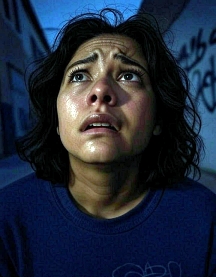Today marks the anniversary of D-Day, one of the most significant and haunting days in modern history. On June 6, 1944, the world held its breath as more than 156,000 Allied troops launched a massive seaborne invasion against Nazi-occupied France. Known as Operation Overlord, this coordinated assault on the beaches of Normandy would ultimately shift the momentum of World War II and reshape the free world’s future.
It was, in every way, a day of impossible courage.
The Scale of Sacrifice
In the early hours of that morning, waves of young men—most barely out of their teens—descended from the sky in parachutes, stormed onto beaches under relentless machine gun fire, and navigated treacherous terrain fortified with mines, barbed wire, and deadly obstacles. Utah, Omaha, Gold, Juno, and Sword Beaches became names etched in blood, memory, and history.
By the end of the day, over 4,400 Allied soldiers were dead. Thousands more were wounded or missing. But they had achieved what many thought was impossible: they broke through Hitler’s Atlantic Wall.
Why It Still Matters
The passage of time may dull the immediacy of war, but D-Day is not just history—it’s legacy. It represents something fundamental that resonates even today:
-
- The refusal to accept tyranny as a final fate.
-
- The willingness to put life on the line for something greater.
-
- The understanding that freedom is never free—it is forged in sacrifice.
At a time when the world feels uncertain again, when propaganda, division, and digital surveillance threaten freedom in more insidious forms, D-Day reminds us that liberty is always worth defending. And that courage can come in collective form, driven by a higher call.
A Personal Reflection
I was very blessed to have been raised to be discerning. As I have gotten older, I’ve begun to question even more of the official narratives we’ve been given about our history, particularly by the government, textbooks, and Hollywood. I use my intuition, common sense, and pattern recognition to sense that much of what we were taught has been carefully shaped for public consumption. Even so, World War II holds a unique place in the American psyche, often referred to as “the last good war.”
While the moral clarity of WWII is a debate worth having (on government and private sector levels) my reverence remains unwavering—for the men who were drafted or who enlisted with fire in their hearts, believing with full conviction that they were defending something sacred.
They left homes, families, and futures to fight in what they were told was the good fight. And in doing so, they carried this nation from the depths of the Great Depression and helped rebuild it with grit, resilience, and unity. I hold deep respect for the spirit of sacrifice, the bond of brotherhood, and the willingness to face death for country, for family, for freedom. That’s a kind of honor that transcends political manipulation. It’s Biblical.
And though I’ve come to understand that many of these wars were orchestrated by interests far above the average citizen’s awareness, the love, bravery, and selflessness of our soldiers is never diminished. For that, I remain thankful—and always will be.
More Than Just Soldiers
The bravery of D-Day wasn’t just found in the bullets and bayonets—it was in the coordination of nations, the tireless efforts of codebreakers, engineers, nurses, pilots, and civilians. The invasion was the result of meticulous planning, deception tactics (like Operation Bodyguard), and unthinkable logistics.
It was human cooperation on a scale the world had never seen—a reminder that when people unite for a cause rooted in righteousness, mountains move and empires fall.
A Warning From the Past
For a truth-seeking audience like ours, it’s important to ask: what would those soldiers think of the world today? Would they recognize the creeping authoritarianism in modern digital control? The manipulated narratives that stoke division? The freedoms traded for illusions of safety?
Those who stormed the beaches of Normandy didn’t do so to create a surveillance state, to bow to technocrats, or to see independent thought censored. They fought for the right to speak, to worship, to dissent, and to pursue truth.
The Echoes of Courage
D-Day isn’t just a date—it’s an invitation to remember that true courage isn’t loud—it’s sacrificial. It’s the quiet resolve to stand firm when the storm comes. It’s facing impossible odds with an unshakable heart.
If you’ve ever wondered how you would’ve responded in history’s greatest moments—you’re in one now.
Freedom in 2025 might not look like trench warfare, but the battlefield is no less real. It’s in the information war, the struggle for bodily autonomy, the fight for our children’s futures, and the quest for unfiltered truth.
Final Thought: Don’t Just Remember—Embody It
Light a candle. Read a soldier’s letter. Watch the grainy footage. Reflect in silence.
But more importantly, embody the courage of D-Day. Speak the truth. Stand for liberty. Defend your conscience. Be the one who doesn’t look away.
Because, in the words of General Dwight D. Eisenhower on the eve of the invasion:
“The eyes of the world are upon you. The hopes and prayers of liberty-loving people everywhere march with you.”
And in a way, they still are.



